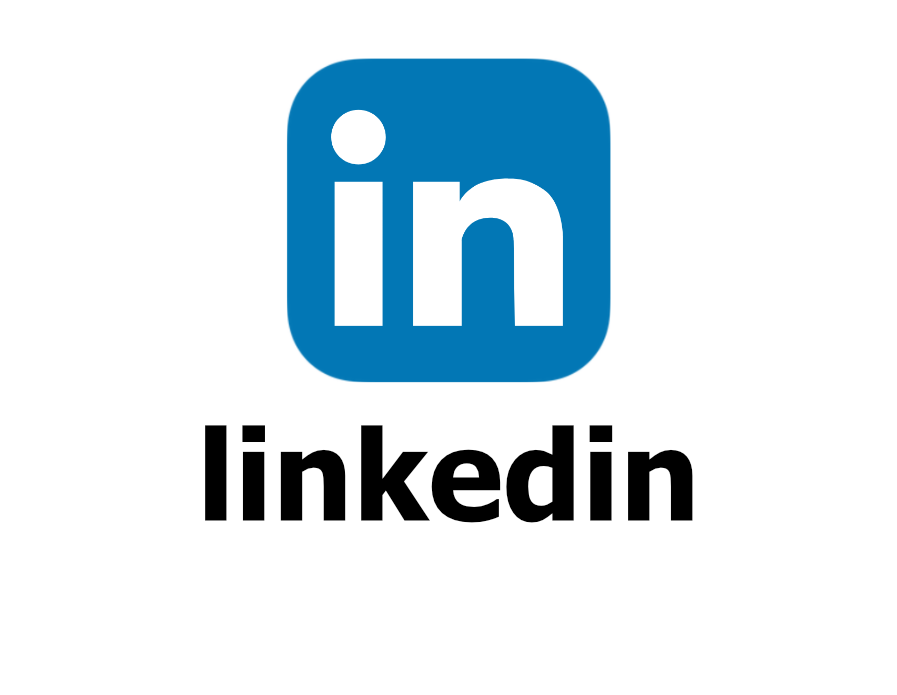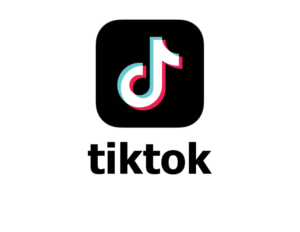It is a challenging moment. You have been working, perhaps for years, and you are successful in your career. Then, a moment of illness, accident, or bad luck, or sometimes the inevitable process of aging, finds you with a disability you never had before. First, take heart, from world leaders such as President Franklin Roosevelt to great scientists such as Stephen Hawking and many others who had amazing careers after acquiring their disability. Unlike Roosevelt, who acquired his disability in the early 20th century, or Hawking, who acquired his in the mid-20th century, you have acquired your disability in the 21st century, when services, supports, and a general understanding of the ability of people with disabilities exceeds anything previously available. It may be a challenge, but there are resources to help.
Keeping Your Job After Acquiring Your Disability
Just because you acquire a disability does not mean that you will lose your job. In fact, the law protects you from being fired simply because you acquired a disability. As such, even though part of this section is about helping you find a new job, if your disability makes it difficult to do the old one, we want to focus first on how you keep your job.
Temporary Disability Benefits
If you acquire a disability, one of the first steps is to figure out how you will continue to pay your bills while you adjust to your new normal.
Workers’ Compensation Insurance: If your disability resulted from an accident in your workplace, you may be entitled to workers’ compensation. California’s workers’ compensation program can help you cover medical care and compensate for lost wages due to injury. You will need to report the injury to your employer and fill out the DWC 1 form that your employer provides you if they are covered by workers’ compensation. The California Employment Development Department’s Division of Workers’ Compensation has information and assistance officers who can help you navigate the workers’ compensation system, and there is also a guide for filling out the DWC 1 form at www.dir.ca.gov/dwc/iwguides/IWGuide01.pdf.
State Short-Term Disability: If your disability did not result from an injury at work or your employer is not covered by workers’ compensation, California has a separate State Disability Insurance (SDI) program that provides short-term disability benefits to eligible workers. To be eligible for SDI, you need to:
- Be unable to do your regular or customary work for at least eight days.
- Be employed or actively looking for work at the time your disability begins.
- Have lost wages because of your disability.
- Have earned at least $300 from which SDI deductions were withheld during your base period.
- Be under the care and treatment of a licensed physician/practitioner or accredited religious practitioner within the first eight days of your disability. The date your claim begins can be adjusted if it does not meet this requirement. You must remain under care and treatment to continue receiving benefits.
If you meet these requirements, you should:
- Complete and submit your claim form (DE 2501) no earlier than nine days after your first day of disability begins but no later than 49 days after your disability begins or you may lose benefits.
- Have your physician/practitioner complete the medical certification portion of your disability claim.
Accommodations
A workplace accommodation is a practical solution to a disability issue that will help both the employer and employee. It can be as simple as flextime, an adjusted workstation, assistive technology or a wide range of solutions. It is important to speak with your employer about any accommodations you may need to return to work. It is illegal for your employer to fire you or otherwise penalize you for making a request for reasonable accommodations. There are organizations such as the Job Accommodation Network (JAN) that are free and can help you learn about the sorts of accommodations that may be available to help get you back to work or that can provide assistive technology for that purpose. The following organizations can speak with you and/or your employer to plan out accommodations that will help you get back to work:
- Braille Institute of America: A nonprofit organization dedicated to meeting the unique needs of people with vision loss, the Braille Institute provides a range of free programs, services and learning experiences to thousands of students. The Institute has served more than 37,000 people and has locations throughout Southern California. Because of the COVID-19 pandemic, the Braille Institute has switched to an all online service model. More information is available on their website: brailleinstitute.org/coronavirus.
- California Council of the Blind: The council exists to advance the interests and protect the independence of blind and low-vision Californians. This membership-based organization has local branches in Glendale/Burbank, Greater Lakewood, Greater Long Beach, Greater Los Angeles, Orange County, San Bernardino, and San Gabriel Valley. Please see Appendix C for contact information for each of these chapters.
- Center for Applied Rehabilitation Technology (CART) Rancho Los Amigos National Rehabilitation Center: CART advances independent living for youth and adults with physical disabilities by connecting them with assistive technology, which can be a game changer to help people with disabilities better integrated into their communities and enter the workforce. Priority areas for CART include seating and mobility devices, AAC systems, software or hardware adaptations, EADLs, worksite evaluations as well as model homes that integrate assistive technology solutions. Services are eligible for individuals with physical disabilities as well as for people with multiple disabilities.
The following organizations can provide you with assistive technology that can be part of your workplace accommodations. Additional resources are available in Appendix D.
- Braille Institute of America: A nonprofit organization dedicated to meeting the unique needs of people with vision loss, the Braille Institute provides a range of free programs, services and learning experiences to thousands of students. The Institute has served more than 37,000 people and has locations throughout Southern California. Because of the COVID-19 pandemic, the Braille Institute has switched to an all online service model. More information is available on their website: brailleinstitute.org/coronavirus.
- California Council of the Blind: The council exists to advance the interests and protect the independence of blind and visually impaired Californians. This membership-based organization has local branches in Glendale/Burbank, Greater Lakewood, Greater Long Beach, Greater Los Angeles, Orange County, San Bernardino, and San Gabriel Valley. Please see Appendix C for contact information for each of these chapters.
- Center for Applied Rehabilitation Technology (CART) Rancho Los Amigos National Rehabilitation Center: CART advances independent living for youth and adults with physical disabilities by connecting them with assistive technology, which can be a game changer to help people with disabilities better integrated into their communities and enter the workforce. Priority areas for CART include seating and mobility devices, AAC systems, software or hardware adaptations, EADLs, worksite evaluations as well as model homes that integrate assistive technology solutions. Services are eligible for individuals with physical disabilities as well as for people with multiple disabilities.
- Deaf and Disabled Telecommunications Program (DDTP): DDTP, operated by the California Public Utilities Commission, ensures that Californians who are deaf or who are hard of hearing can have access to telecommunications technologies. DDTP is composed of CRS, which provides telephone relay support, and CTAP, which provides accessories for qualified individuals. Relay services are available in both English and Spanish. You can learn more about CRS on their website: https://ddtp.cpuc.ca.gov/default1.aspx?id=1482. To learn more about CTAP or apply for services, please visit https://californiaphones.org/apply-now.
- EmpowerTech: EmpowerTech is a Los Angeles-based nonprofit organization that helps people with physical and developmental disabilities use assistive technology to live their lives, integrate into their communities and succeed at their jobs. EmpowerTech matches individual needs to state-of-the-art software and the latest hardware solutions.
There are also associations that focus on helping businesses learn to accommodate the needs of people with disabilities in the workforce. If your employer is not already a member of one or more of these organizations, bring them to your employer’s attention:
Other organizations that may be of help in learning more about employing people with disabilities include the following:
- AbilityLinks
- Bender Consulting Services
- Employer Assistance and Resource Network for Disability Inclusion
- Hire Disability Solutions
- HirePotential
- Job Accommodation Network (JAN)
- Office of Disability Employment Policy (ODEP)
- Partnership on Employment and Accessible Technology (PEAT)
- Return on Disability
Searching for a New Job
Sometimes after you acquire a disability, it is not practical for you to continue the job that you had before. Sometimes even with reasonable accommodation, some part of your new normal does not fit with the job you used to do. If that is the case, there are resources available for you.
American Job Centers of California
AJCC provides employment services to all residents of California. You can find the steps to take to receive assistance in Appendix E.
Vocational Rehabilitation (VR) System
The VR system provides specialized employment services for people with disabilities. In California, these services are provided by DOR, which will ask you to set a job goal and provide services to help you get there. This could include helping with accommodations, paying for additional education, creating a career development plan, job exploration, skills and self-advocacy training, and opportunities for job experience.
According to DOR, to be eligible for their services, you must meet these conditions:
- You must have a disability.
- You must want to work.
- Your disability must be impeding your ability to find or keep a job.
- You must think that VR services (like job training and placement) will help you to find or keep a job.
In order to apply for DOR services, you first need to fill out an application and bring it to your local DOR office. Contact information for all DOR offices can be found in Appendix A, or find the nearest one to you: www.dor.ca.gov/Home/FindAnOffice. DOR will contact you to schedule an intake appointment. Additional information you will want to bring to your appointment include:
- Any documents you have regarding your disability.
- Recent records from offices that may have referred you (such as the Social Security Administration or the Ticket to Work program).
- A list of names, addresses, and telephone numbers of doctors, professionals and organizations that you have consulted about your disability.
After this initial meeting, DOR will determine your eligibility for VR services within 60 days of receiving the information provided. If DOR considers you eligible for DOR services, it will give you a Significance of Disability Score that it will use to determine how soon you receive services. There is a significant likelihood that you will be placed on a wait list, so start applying as soon as possible so you can access services.
DOR, as well as AskJan.org, is often a good place to learn about reasonable accommodations to use in the workplace. The following organizations also can help you learn about various types of accommodations and how to build a plan for your work environment:
- Braille Institute of America: A nonprofit organization dedicated to meeting the unique needs of people with vision loss, the Braille Institute provides a range of free programs, services and learning experiences to thousands of students. The Institute has served more than 37,000 people and has locations throughout Southern California. Because of the COVID-19 pandemic, the Braille Institute has switched to an all online service model. More information is available on their website: brailleinstitute.org/coronavirus.
- California Council of the Blind: The council exists to advance the interests and protect the independence of blind and low-vision Californians. This membership-based organization has local branches in Glendale/Burbank, Greater Lakewood, Greater Long Beach, Greater Los Angeles, Orange County, San Bernardino, and San Gabriel Valley. Please see Appendix C for contact information for each of these chapters.
- Center for Applied Rehabilitation Technology (CART) Rancho Los Amigos National Rehabilitation Center: CART advances independent living for youth and adults with physical disabilities by connecting them with assistive technology, which can be a game changer to help people with disabilities better integrated into their communities and enter the workforce. Priority areas for CART include seating and mobility devices, AAC systems, software or hardware adaptations, EADLs, worksite evaluations as well as model homes that integrate assistive technology solutions. Services are eligible for individuals with physical disabilities as well as for people with multiple disabilities.
The following organizations can provide you with assistive technology, which includes everything from braille printers and screen readers to voice recognition technology and control mice and the myriad of other tools that allow you to remain fully productive even with your newly acquired disability. Additional resources are available in Appendix I, including captioning services and ASL interpreters.
- Braille Institute of America: A nonprofit organization dedicated to meeting the unique needs of people with vision loss, the Braille Institute provides a range of free programs, services and learning experiences to thousands of students. The Institute has served more than 37,000 people and has locations throughout Southern California. Because of the COVID-19 pandemic, the Braille Institute has switched to an all online service model. More information is available on their website: brailleinstitute.org/coronavirus.
- California Council of the Blind: The council exists to advance the interests and protect the independence of blind and low-vision Californians. This membership-based organization has local branches in Glendale/Burbank, Greater Lakewood, Greater Long Beach, Greater Los Angeles, Orange County, San Bernardino, and San Gabriel Valley. Please see Appendix C for contact information for each of these chapters.
- Center for Applied Rehabilitation Technology (CART) Rancho Los Amigos National Rehabilitation Center: CART advances independent living for youth and adults with physical disabilities by connecting them with assistive technology, which can be a game changer to help people with disabilities better integrated into their communities and enter the workforce. Priority areas for CART include seating and mobility devices, AAC systems, software or hardware adaptations, EADLs, worksite evaluations as well as model homes that integrate assistive technology solutions. Services are eligible for individuals with physical disabilities as well as for people with multiple disabilities.
- Deaf and Disabled Telecommunications Program (DDTP): DDTP, operated by the California Public Utilities Commission, ensures that Californians who are deaf or who are hard of hearing can have access to telecommunications technologies. DDTP is composed of CRS, which provides telephone relay support, and CTAP, which provides accessories for qualified individuals. Relay services are available in both English and Spanish. You can learn more about CRS on their website: https://ddtp.cpuc.ca.gov/default1.aspx?id=1482. To learn more about CTAP or apply for services, please visit https://californiaphones.org/apply-now.
- EmpowerTech: EmpowerTech is a Los Angeles-based nonprofit organization that helps people with physical and developmental disabilities use assistive technology to live their lives, integrate into their communities and succeed at their jobs. EmpowerTech matches individual needs to state-of-the-art software and the latest hardware solutions.
Skill Development Organizations
Other organizations can help you learn new job-related skills and develop your resume and career plans:
Internship and Mentorship Programs
Local businesses and nonprofits sometimes offer internship and job opportunities for people with disabilities, including these programs:
- abilityJOBS
- AbilityLinks
- ABILITY Magazine
- Association of University Centers on Disabilities
- Dan’s List
- disABLEDperson
- Getting Hired
- Hire Disability Solutions
- Hospital Association of Southern California
- Idealist
- JVS SoCal
- LA Jobs Portal
- L.A.: RISE
- Manpower
- OnwardCA
- USAJOBS
- Work for Good
Protecting Your Legal Rights
The primary focus of adapting to your mid-career disability should be a focus on your talents and the employer that wants to use them. That said, our society is sadly not free from discrimination. Should you experience disability discrimination while seeking or maintaining a job, there are organizations that can provide you with legal representation or advocate for you, including (in alphabetical order):
- Bet Tzedek Legal Services: Bet Tzedek Legal Services has long provided free legal support, advice and expertise to low-income Angelenos. Key areas of their legal practice include Justice for Seniors, Justice for Workers, and Rapid Response programs to meet community crisis needs. In response to the COVID-19 pandemic, they have developed a range of guidance on emergency protections related to eviction, employment, elder abuse, and conservatorship issues. Documentation is available in English, Spanish and range of other languages.
- California Council of the Blind: The council exists to advance the interests and protect the independence of blind and low-vision Californians. This membership-based organization has local branches in Glendale/Burbank, Greater Lakewood, Greater Long Beach, Greater Los Angeles, Orange County, San Bernardino, and San Gabriel Valley. Please see Appendix C for contact information for each of these chapters.
- Department of Fair Employment and Housing (DFEH) – Los Angeles Office: DFEH is the nation’s largest state agency dedicated to protecting civil rights and fighting against discrimination in the employment arena, in the housing market and in the business community. Located in Downtown Los Angeles, DFEH’s L.A. office handles discrimination complaints, requests for public records, and offers mediation services.
- Disability Rights California (DRC): DRC is the California branch of a federally funded, nation-wide network of protection and advocacy services for people with disabilities. DRC protects the rights of Californians with disabilities through litigation, policy advocacy, community trainings and dedicated self-advocacy resources.
- Disability Rights Legal Center (DRLC): Since the 1970s, DRLC has been an advocacy nonprofit focused on advancing the civil rights of people with disabilities and addressing other legal barriers impacting the disability community. By working on both individual and class action court cases, DRLC challenges discrimination and advances change.
- S. Equal Employment Opportunity Commission (EEOC) – Los Angeles District Office: EEOC is the federal agency responsible for the enforcement of laws that protect people from discriminated against on the basis of their “race, color, religion, sex (including pregnancy, gender identity, and sexual orientation), national origin, age (40 or older), disability or genetic information.” Like most of their physical offices, the Los Angeles office of the EEOC is temporarily closed and people who want to schedule an appointment with the EEOC can do so online at: https://publicportal.eeoc.gov/Portal/Login.aspx. The EEOC can also be reached via videophone at 1-844-234-5122.
Disability-Specific Organizations
Part of learning to live with a newly acquired disability is learning more about people who have succeeded with your disability. Many times, people with acquired disabilities have come together to share experience, support and learning. This is especially the case in the world of people with spinal cord injuries. Please see Appendix D for a list of organizations for people with a variety of specific disabilities.
For additional resources that may be relevant, check 211 for government resources provided in Los Angeles County and OnwardCA for government and nonprofit resources available for your individual needs.
The most important thing to remember is that there is hope and there is opportunity.









